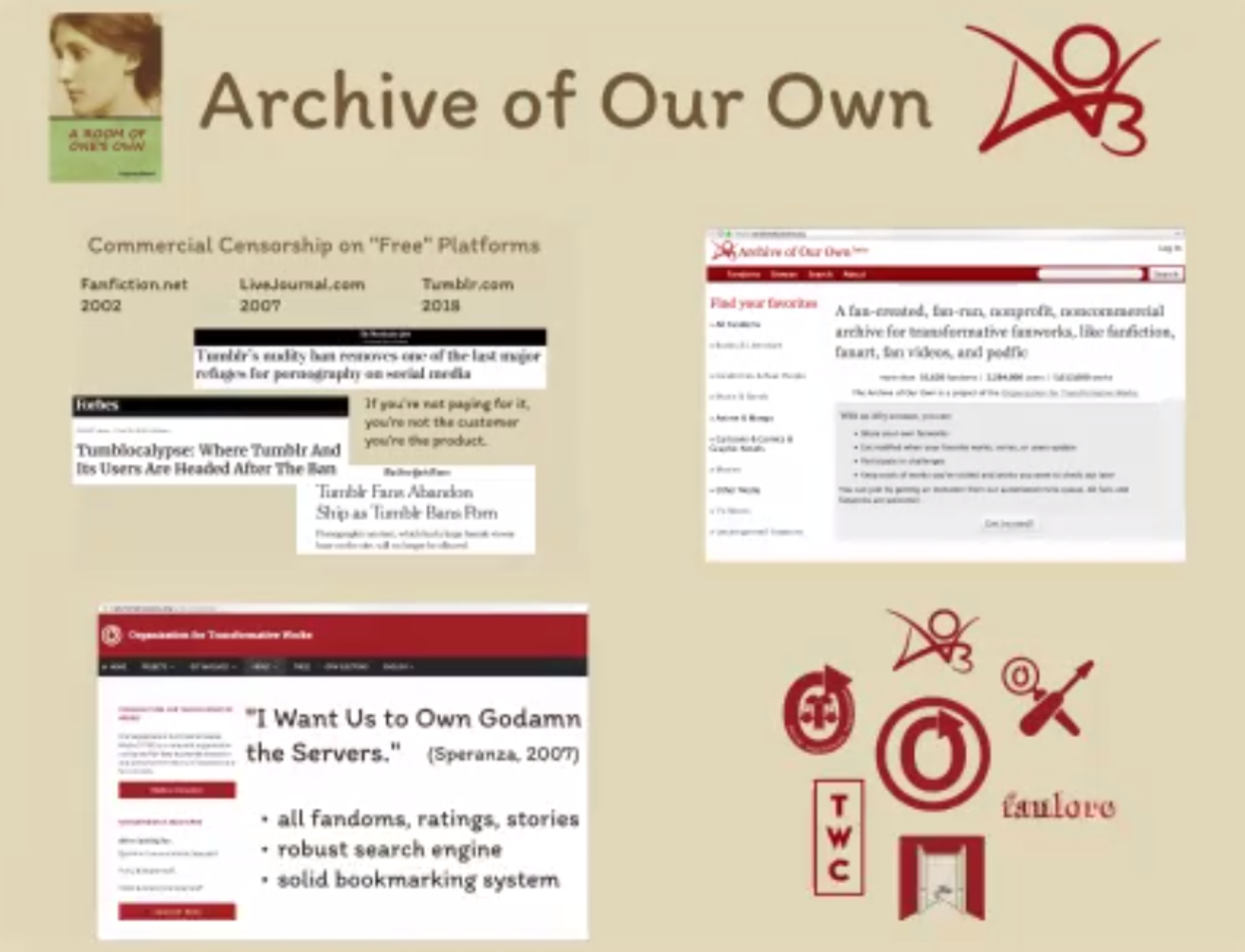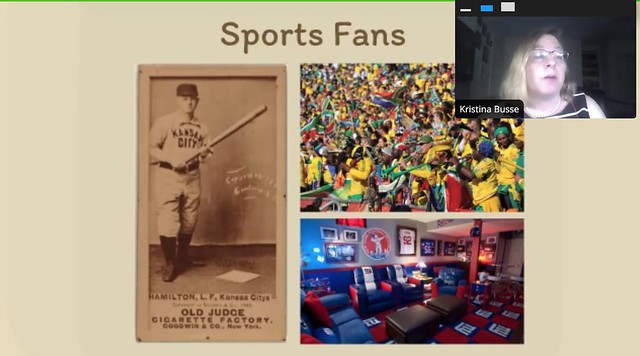HTNM Revisited: Feminist Open Access & Internet Publishing

Recap by Julia Irwin, the 2019-2020 Graduate Liaison for the Art, Technology, and Culture Colloquium.
“Because I want us to own the goddamn servers, okay?” – Speranza
On March 12, BCNM welcomed three leaders in feminist open-access publishing—Francesca Coppa, Kristina Busse, and Karen Hellekson—to its inaugural wholly online public event. Joined by respondents Katherine Morrissey and Melanie Kohnen, along with audience members and, yes, fans, from across the globe, the speakers generated a lively discussion about how a fannish ethos can and must be built into the very platforms used to archive and access fan works.
The evening opened with a talk by Kristina Busse about the history of media fandom. While an internet search for the term “fan” today calls up references to “consumers” and “users,” along with commercial activations of fan works on major social media sites, fandom’s origins tell a different story. Up until a shift toward corporatization about a decade ago, fans had long been not consumers but creators, not users but active participants in a community of ultra- enthusiasts. Fandom celebrates the transformation of commercial products as a mode of creative and anti-capitalist expression and a way to tell the untold stories, represent the underrepresented. Just as transformative works remix and subvert commercial content, the media platforms used to archive and distribute fan work have a similarly tenuous relationship to corporatized infrastructure. While appropriating and hacking existing internet tools was a common method among fans in the aughts, it became apparent that in order to have full creative control they would have to build and maintain their own publishing platforms.
Enter the Organization for Transformative Works (TWC). Co-founded by Francesca Coppa, OTW is a nonprofit developed entirely by fan volunteers that supports several fan resources such as the Hugo award-winning Archive of Our Own (AO3) and the journal Transformative Works and Cultures (TWC) (co-developed by Kristina Busse and Karen Hellekson).
Francesca Coppa emphasized the guiding principles on which OTW and AO3 were founded over a decade ago and that, in the era of Cambridge Analytica, are even more crucial today. She says, “we don’t sell your attention, we don’t sell your data, and we have a clear purpose—to serve fan interests and preserve the history of fan works.” These tools bake into their designs a set of principles that work against the grain and logic of dominant institutions. Karen Hellekson’s talk also emphasized how the design choices for Transformative Works and
Cultures follow suit with this intent. These distinctions include features like no auto-scroll function, open tagging, free academic journal content, the ability to add and access rich media content that may elsewhere be excluded due to copywrite issues, and expanded accessibility with compatibility with screen readers.
All three publishing entities were built and have been maintained by women working as volunteers, and therefore the question of (free) labor in relation to a feminist fannish ethic sparked a lively discussion among the speakers and respondents. Francesca Coppa brought this up with respect to the relationship between community building and invisible labor, in which the former often relies on the latter. In her response to the talks, Melanie Kohnen connected this volunteer internet labor to the “do what you love” ethos of Gen Z internet culture, in which harnessing one’s passion is brought back into the space of commodification as young creative producers seek sponsors and post their works on Patreon. Just as fandom continues to identify itself in opposition to commercial modes of interaction between creators and audiences, and just as platforms like AO3 are all the more relevant and important amid today’s corporatized internet culture, Kohnen’s response returned us to the ever-present question with respect to fandom—how does a fan community continue to negotiate its relationship with the very corporate properties it both relies on and seeks to destabilize?

